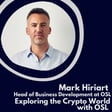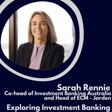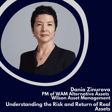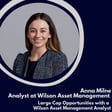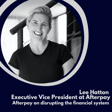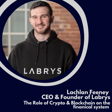
Making Returns from Carbon Markets
We dive into the carbon offset market, covering definitions and technicalities and exploring the outlook for the sector. Izzy Jensen is the founder of Kakariki Capital, an Australia-based asset manager that focuses on investments in environmental and carbon commodities.
The Alpha Females Invest is a financial podcast for those who want to elevate their investing knowledge. We host a series of experts to navigate a technical deep dive into their field of expertise.
We aim to promote gender diversity by having at least an equal representation of female guests on our show.
Thank you for listening and supporting The Alpha Females Invest.
Disclaimer: The views expressed in this podcast are those of the speaker. The content is not financial advice. You should seek the assistance of a professional who can take your personal circumstances into account prior to making any investment decision.
The awesome tunes are courtesy of @tmykmusic.
Find out more here:





